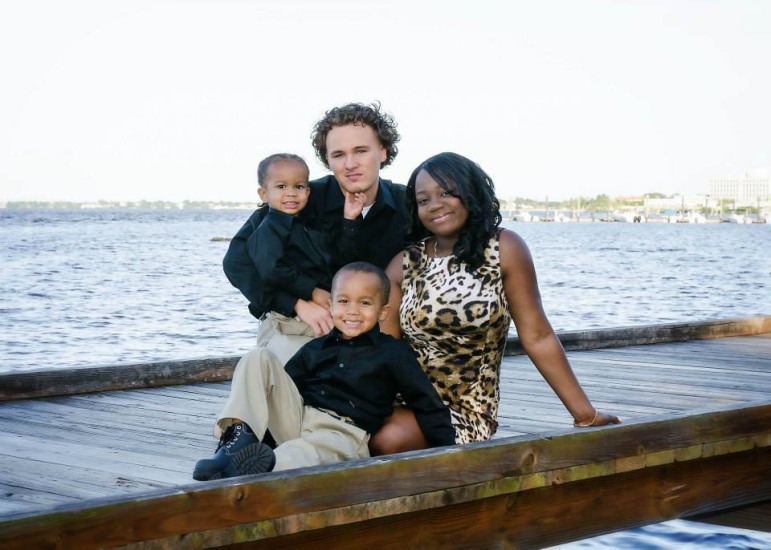
Anthony and Dina Sarver, with their two children, Noah and Anthony Jr.
Dina Lexine Sarver, wife and mother of two small children, has longed for years to be a nurse.
So it’s easy to imagine her excitement when she was accepted last year into a nursing program at Indian River State College in Fort Pierce, Fla., where she had been going to school to take core requirements.
At the second orientation for newly admitted students, however, her excitement turned to dejection when she realized her juvenile record would prohibit her from being a nurse.
“I made it in on the first try, but I had to give up my seat,” Sarver recalled Thursday in an interview. She was part of a conference call about the first national scorecard on juvenile record confidentiality, done by the Juvenile Law Center.
She was so determined to become a nurse that after this she sent 242 emails to different nursing schools, she said, hoping she could be admitted to a program without her juvenile record being held against her. As it turns out, she cannot even be a chaperone for her children’s field trips. Her juvenile offenses block her.
At age 12, Sarver became “defiant,” she said, about the time her parents divorced. She moved from a nice home in the suburbs into Section 8 housing with her mother and several of her brothers and sisters. Because her mother is Haitian and needed help translating complicated forms for vouchers and Medicaid, Sarver became her mother’s helper. It took a toll.
“I couldn’t concentrate in school,” she said. “I acted out.”
Her first arrest, she said, was for getting into a fight at school at age 12.
By age 15, she was serving time for auto theft. And, she was pregnant.
Having a baby was the best thing that ever happened to her, she said.
“I realized I had another life I was responsible for,” she recalled. “It was time to get my life together.”
She did. She got her GED, married and went to college. Eventually, she and husband Anthony had a second child, Noah. Her parents’ lives turned around, too; they reunited and remarried.
Even though things have been going well in her life for some time, Sarver doesn’t know what her future holds. She switched her major to health care management and is scheduled to graduate next month. But she worries whether she can work in a health care setting.
She wants to have a chance to move ahead, to “not have my past catch up with my future.”
“The juvenile justice system was created to rehabilitate youthful offenders, and it does,” Sarver said. “And so if you’re going to acknowledge that we are different, then acknowledge that we can change and grow.”